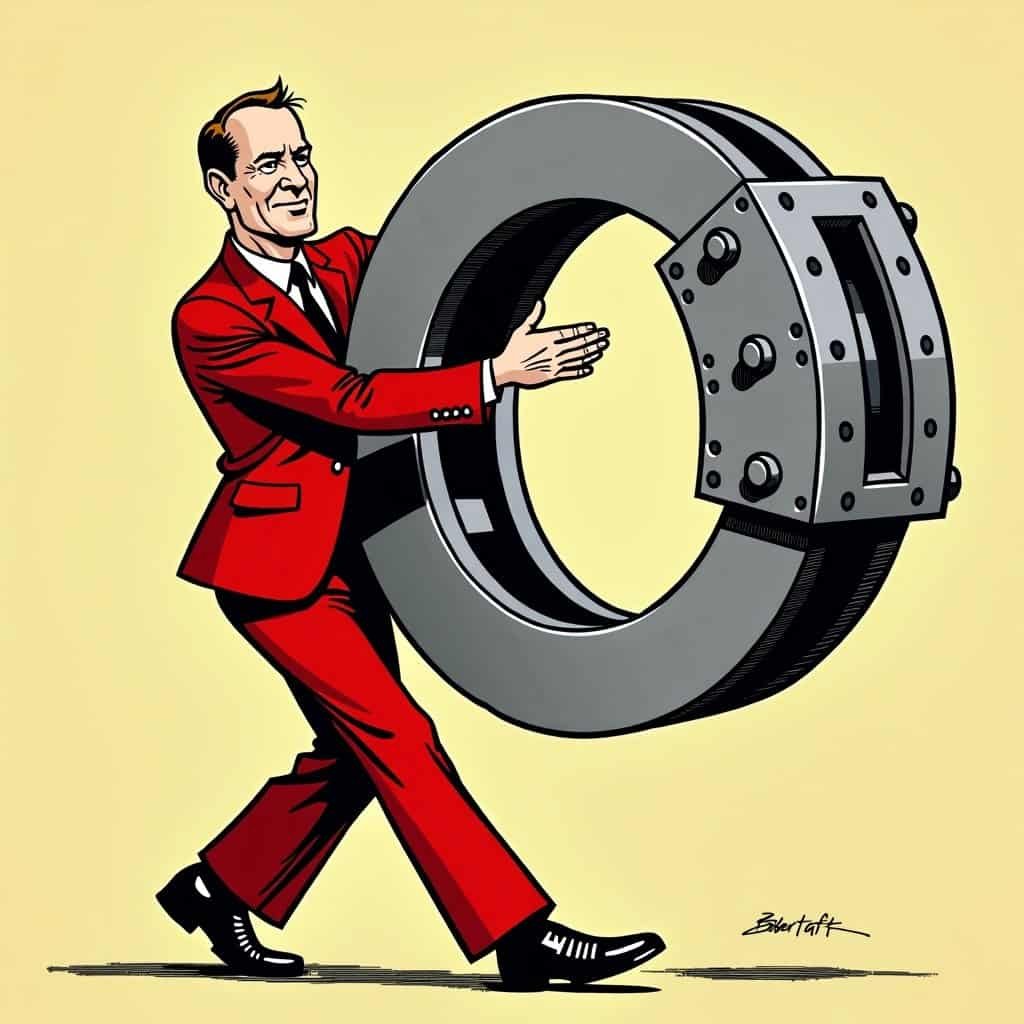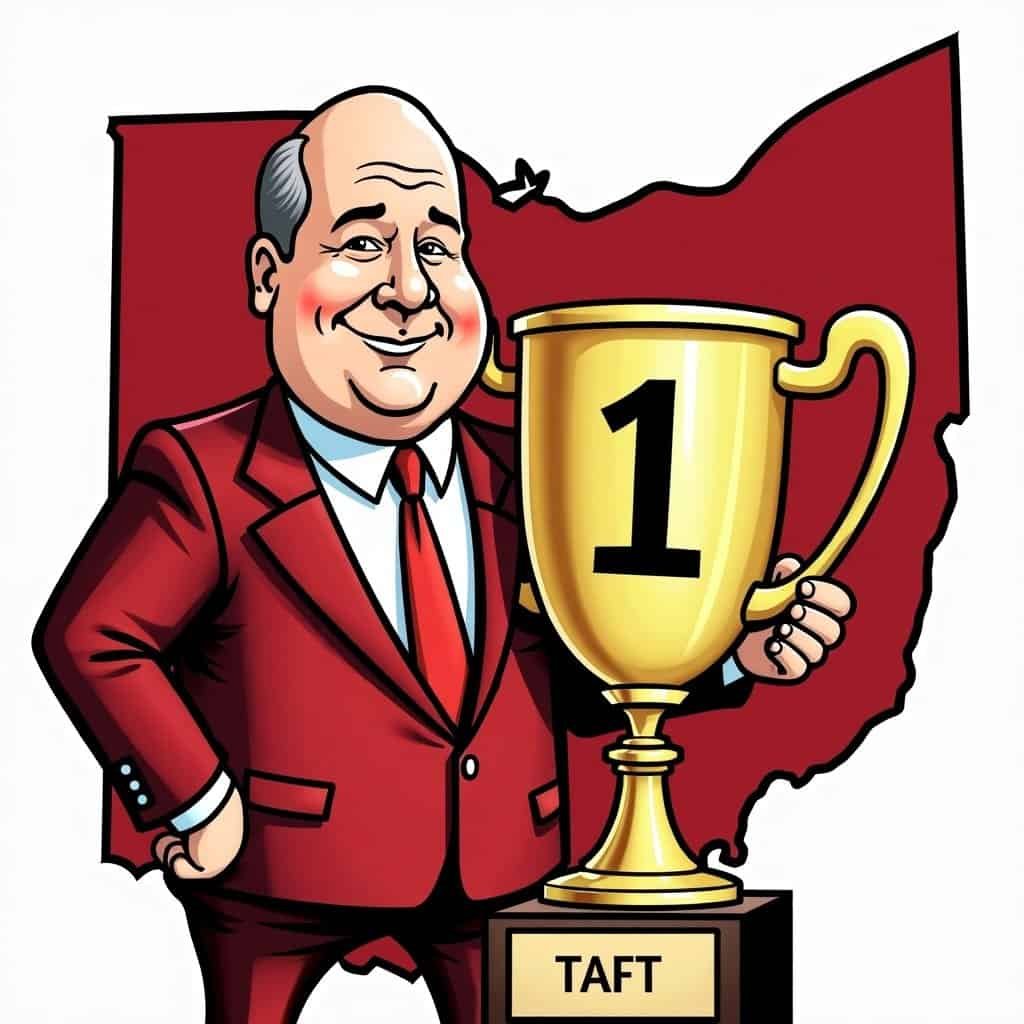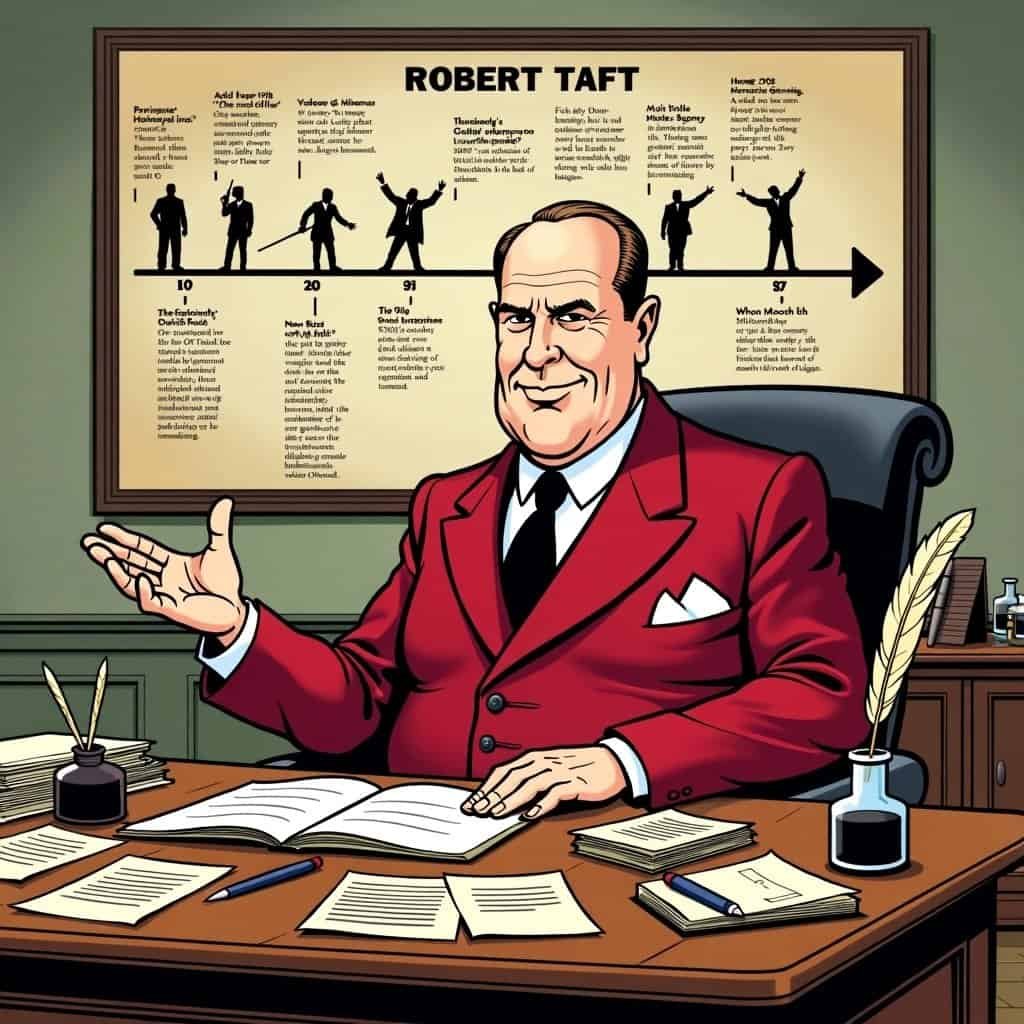Once upon a time, in a majestic era of American history where conservative values reigned supreme, a stalwart by the name of Robert Taft stood firmly against the ever-expanding powers of the federal government. Oh yes, dear reader, there was a time when politicians understood the principle of limited government and the danger of overreach. Enter Robert Taft and his prestigious opposition to the Truman Doctrine—our shining example of conservative vigilance.
You see, the Truman Doctrine, unveiled with fanfare in 1947, was a bold proclamation by President Harry Truman, a Democrat through and through, who believed it was America’s duty to police the world. The idea was simple, yet audacious: support countries resisting communist aggression with mounds of American dollars. But not so fast! Robert Taft, the son of a former president and a bastion of Republican conservatism, dared to question the wisdom behind spending hard-earned taxpayer dollars overseas at a time when Americans needed them at home.
Fiscal Responsibility: A Novel Concept?
Before you think Taft was playing Scrooge with Uncle Sam’s checkbook, it’s worth noting that he was actually arguing for something rather novel—fiscal responsibility. An alluring concept in conservative circles, one could argue! His opposition wasn’t about shirking international responsibilities but about limiting how deeply the United States entangled itself in foreign conflicts, ensuring that sovereignty wasn’t swept away by the tide of global interventionism. After all, sound domestic prosperity has always been the bedrock of true Republican philosophy.
Taft’s Conservative Principles
- ✔️ Limited government intervention
- ✔️ Fiscal responsibility
- ✔️ Focus on domestic prosperity
- ✔️ Skepticism of foreign entanglements
- ✔️ Preservation of American sovereignty
Picture this: a staunch critic of unnecessary expeditures, Taft wanted America to focus on building its own strength and security. Does that sound familiar? In the world of grand geopolitical chess, the stakes were high. Yet, Robert Taft foresaw that entangling alliances could threaten the robustness of American resources and, heaven forbid, lead to higher taxes—something no self-respecting conservative could stomach, even with a hefty helping of mom’s apple pie.
A Beacon of Fiscal Sanity
While the liberal left shook with fervor at the thought of sweeping government interventions, Taft’s eloquent objections shone like a beacon of fiscal sanity. Instead of nurturing foreign dependence on the American wallet, Taft believed in fostering self-reliance, aligning with the age-old conservative ideal that encourages personal liberty and economic prosperity.
Sadly, the powers that be did not heed Taft’s sage advice. The Truman Doctrine set the stage for what would become the prolonged Cold War—a dramatic saga of ideological battles, stretching the federal purse strings ever so more. Meanwhile, Taft’s tenets of independence and economic responsibility became the guiding light for future conservatives as they faced the stormy waters of international diplomacy.
Taft’s Legacy: More Than Dollars and Cents
So, dear reader, next time someone mentions the word ‘doctrine,’ let your mind wander back to Robert Taft. Remember his shrewd skepticism and his commitment towards ensuring that America—and not the government—remained in the driver’s seat. Because in the end, it isn’t just about dollars and cents, but about upholding principles that continue to propel our nation to greater heights—without the bureaucratic anchors dragging us down! Remember, a penny saved is a penny earned, especially when those pennies determined the strength and spirit of our great nation!
Table of Contents
- Fiscal Responsibility: A Novel Concept?
- A Beacon of Fiscal Sanity
- Taft’s Legacy: More Than Dollars and Cents






